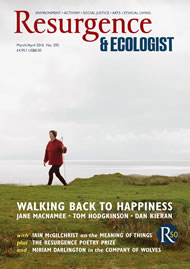Twenty-five years ago I undertook a minor expedition to satisfy a growing curiosity: I drove for a considerable distance from Menton, on the Franco-Italian border, westwards along the Côte d’Azur, as I wanted to get a feel for just how much of the French Riviera, the Provençal coastline, had been built up.
I soon found out. All of it. It hadn’t been grossly disfigured by heavy industry, like parts of the Greek or Italian coasts, and a lot of it was still attractive with its olive trees and umbrella pines, but the littoral strip had wholly lost its wildness: it had been commercialised entirely. It wasn’t until you got past Le Lavandou that truly wild coast could be encountered at Cap Bénat, which, however you do the drive, is more than 100 miles from Menton.
Consider: 100 miles of continuous development, plonked onto one of the loveliest shorelines in the world (and let’s not even contemplate the Spanish costas). To see that as a whole makes you realise how it is all the more remarkable that such a thing has not happened in Britain, and that the wild and unspoiled nature of our own most beautiful stretches of coast has been largely saved for future generations to delight in.
But not by accident: they have been rescued by an extraordinary project, the National Trust’s Enterprise Neptune, which, since its founding in 1965, has determinedly bought up 742 miles of the loveliest marine littoral in England, Wales and Northern Ireland, at a cost of more than £65 million, for perpetual preservation. (Scotland is not part of the scheme.)
Patrick Barkham’s Coastlines is a celebration of this astonishing achievement and these places. It is a semi-official one: it was suggested to him by the National Trust itself for Enterprise Neptune’s 50th anniversary and is full of the details you would find on one of the Trust’s guidebooks to plan your outing. But this is very much more than a guidebook: it is an endeavour to get to the heart of why these towering cliffs and tiny coves, these dunes and downs, these islands and shingle ridges from Lindisfarne to Land’s End are worth conserving in their pristine state; and it succeeds with panache.
A young Nature writer with deserved plaudits for previous books on butterflies and badgers, Barkham is engaging from the start with a thematic rather than geographical approach: instead of wandering dreamily from Cornwall to Devon, and so on, he pursues topics such as Art, War, Faith, Passion and Childhood, and this at once enables him to see the coast not only through the lens of natural beauty, but also through the lives of its more fascinating inhabitants down the centuries. The wondrously bizarre undercliff at Lyme Regis is here, yet so is its best-known celebrant, John Fowles; the bare but beautiful Llŷn Peninsula is vividly evoked through the life of its severe and Spartan poet R.S. Thomas.
Even more than by the book’s structure, though, these coastlines are brought alive by the sharpness of Barkham’s eye and the acuity of his ear: “The noise of water on shingle was a conversation, pebble to pebble but also sea to land; an eloquence a sandy beach can never obtain.” Or how about this, on Cornwall’s strange estuarine world of wooded inlets, the Carrick Roads? “This meeting point of leaf and seaweed was as disorientating and bewitching as the contrary mix of wooing woodpigeon and shrieking redshank and the colliding scents of hay and mud.”
Getting to the heart of it: Barkham has the happy knack of finding exactly those aspects of the Penwith peninsula or the Farne Islands that make you want to drop everything and head off there at once, scattering fascinating nuggets about him as he does so, such as the fact that there are 43 unbridged tidal islands in Britain that can be walked to from the mainland.
Most of all, he conveys a vivid sense that this borderland where two worlds meet, terrestrial and marine, is in its natural state inherently exhilarating. “Every day, there is something surprising, joyful and new to be found beside the sea.” That so much of it in Britain is not now encased in concrete and caravan parks, thanks to Enterprise Neptune, is one of the few signs of hope in a world that is so rapidly going to hell in a handcart.







